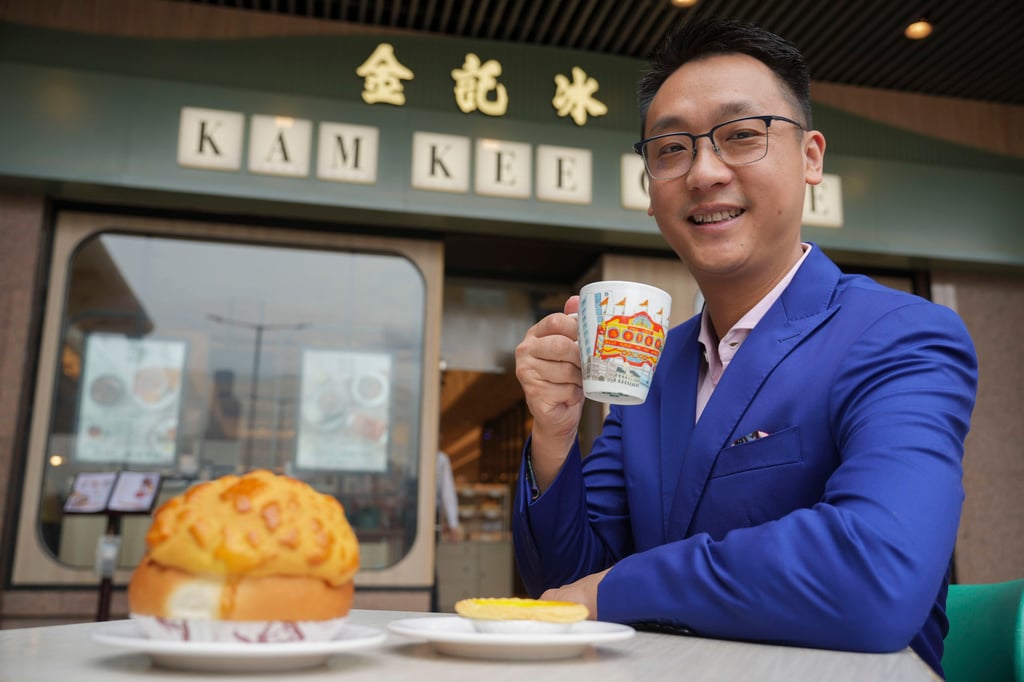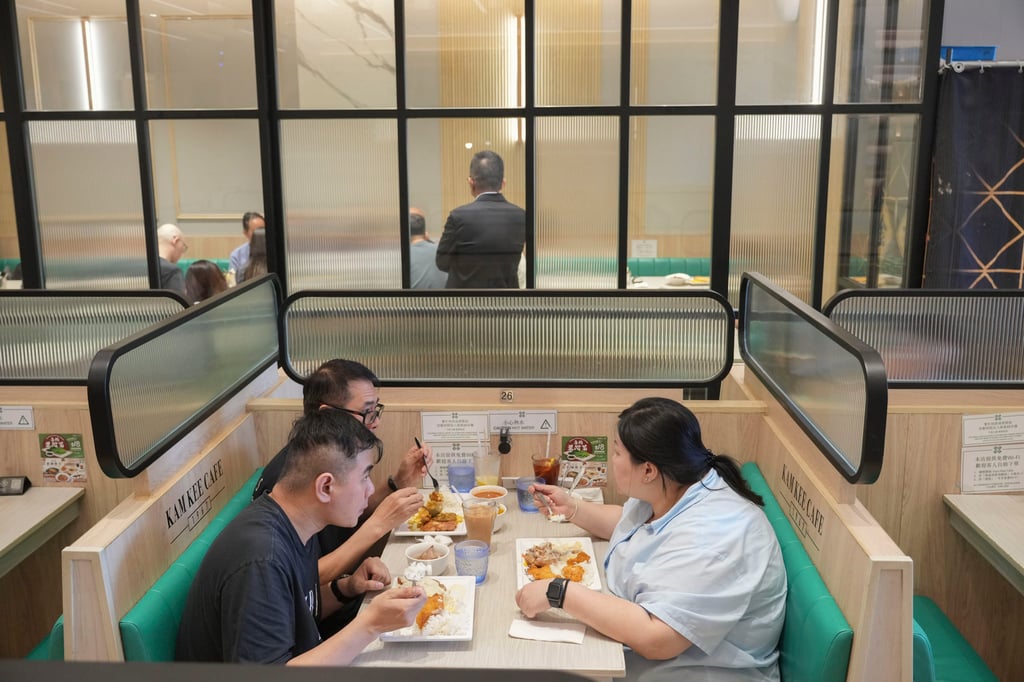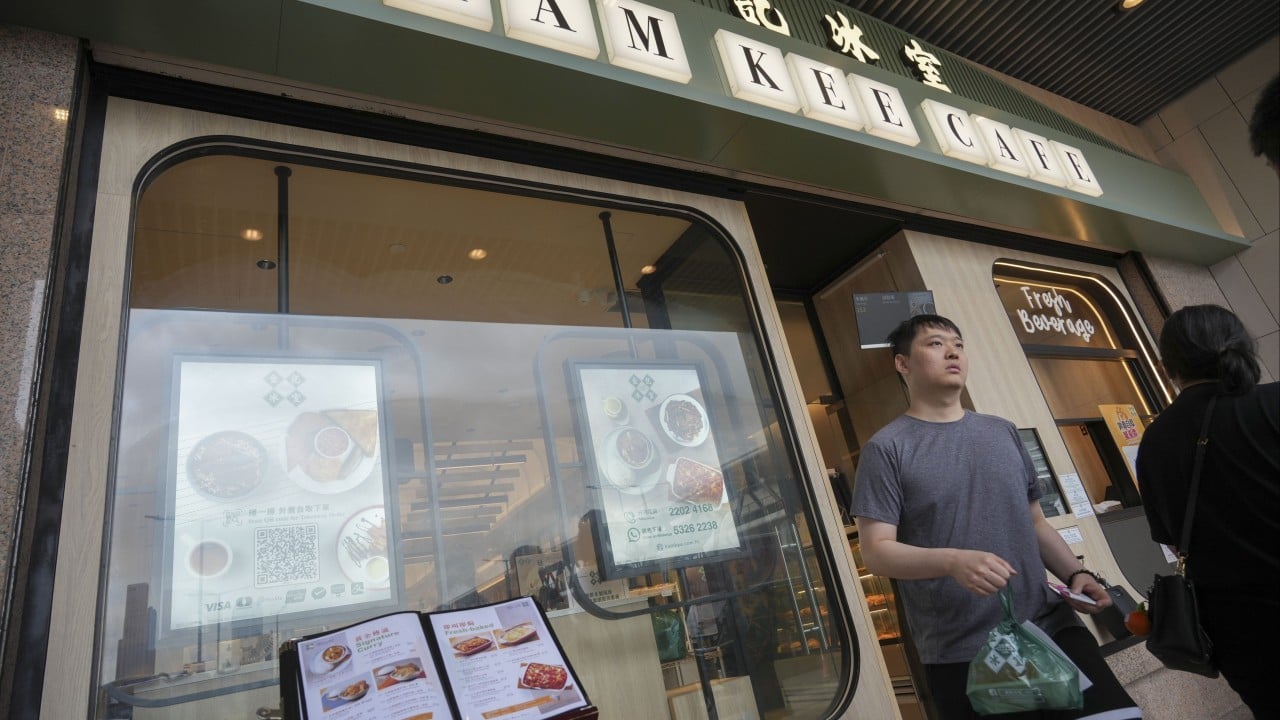Hong Kong restaurant chain Kam Kee Holdings has closed 11 outlets this year amid a rise in residents heading across the border to spend their cash, but the company’s chairman has vowed to carry on despite the difficult business climate facing his industry.
Company chairman Ray Chui Man-wai, who is also president of the Institution of Dining Art catering body, brushed off speculation that the business, which has 24 restaurants and about 900 employees, would shut down or that he was in dire financial straits.
“I never thought that the post-Covid situation would be worse than the pandemic, which was already very hard enough for us. Now we are all baffled over when we can see the light at the end of the tunnel,” he said.
“There have been times I thought of giving up amid sleepless nights because it was so difficult for me … But the greatest driving force for me to persist is my promise to the founder of Kam Kee Cafe when I took over this brand in 2013 that I would never give up.”
Chui said another motivation for him to hold on was his responsibility to the company’s employees.
“If I pulled down the shutters, they would be in a helpless state. My responsibility to them will not allow me to do that,” he added.
The company closed 11 outlets this year amid the worsening business environment linked to the outflow of diners heading to nearby mainland Chinese cities, he said.
Chui added that the company was undergoing restructuring to drum up business and was also in discussions with foreign investors about funding injections.
“We shut down 11 outlets because there has been a drop of up to 30 per cent in business during weekends, and we expect the overall business to fall by 15 per cent this year,” he said.
“We are retaining 24 restaurants that are profitable now. At the same time, we are in talks with foreign investors about injecting funds into our group, including an international fund.”
The industry leader said the company was in debt, similar to so many residents, but the repayments were still manageable.
Chui urged the government and banks to roll out more relief measures to help businesses ride out the difficult times.
He added that he had settled HK$3.1 million (US$397,120) in unpaid pension fund contributions owed to employees in May.

“Like many people, we have been in debt over the past few years in an attempt to ride out the pandemic crisis. But we can manage the debts and pay in instalments as the banks and the government are very supportive,” he said.
“We hope there will be more relief measures from authorities and banks in terms of the amount and the repayment periods to help companies in need. Those still hanging on at the moment really have hearts dedicated to the catering industry.”
Chui estimated that the industry slump would bottom out this year and the situation could improve early next year after the cross-border shopping trend gradually subsided and if an anticipated interest rate cut helped stimulate consumption.
He added that the company’s mooncake sales had fallen by 20 per cent year on year, indicating the hard times could linger until the end of this year.
Chui’s group, which operates 15 Kam Kee Cafe venues and nine other eateries, took over the Kam Kee brand in 2013 from founder Chan Gui-chou, who set up the restaurant chain in 1967.

But this year saw Hong Kong’s appetite for dining out continue to fall, with the latest figures showing a more than 2 per cent drop in business during the second quarter compared with the same period in 2023.
Government statistics showed restaurant receipts between April and June stood at HK$26.9 billion, a drop of 2.1 per cent year on year.
Authorities highlighted changed spending habits among visitors and Hongkongers as a major reason for the fall and said there was no relief on the horizon.
The restaurant industry has struggled as Hongkongers flock to neighbouring destinations such as Shenzhen after the post-pandemic border reopening, with the cost of living in the mainland city considered to be more affordable.
The pegging of the Hong Kong dollar to the US dollar has also been blamed for keeping the city’s currency expensive compared with regional competitors such as the Japanese yen.
American chain Outback Steakhouse earlier this month announced it would close nine of its 19 Hong Kong restaurants because of high rents and poor sales, with more than 300 staff laid off.


